[This is the eulogy that my brother, Vance Kuhner, gave at my mother’s funeral on Saturday, September 22nd.]
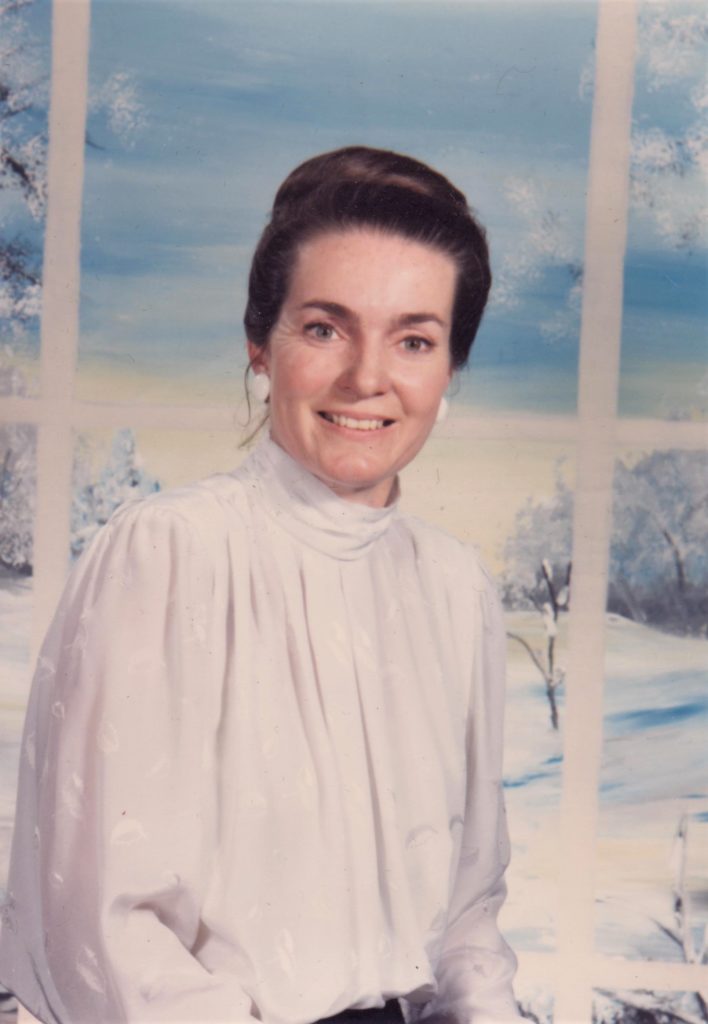
Mary Costello as a teacher at P.S. 66.
My name is Vance Kuhner, and I am Mary Costello’s son. I am not here today to mourn the woman I called Mom, or “Kid,” the woman most of you knew as Mary, some as Oma, some as Aunt, maybe some of you as Rose, or Sister Richard.
A week ago on Saturday, the feast of Our Lady of Sorrows, Mary left this world, and those who knew and loved her were instantly heart broken. It was hard to understand why this world had to lose such a ray of light.
But that’s not what Mary wanted. So I stand here today with great joy, as she wanted it, to tell of a Christian life well lived.
Mary’s life was taken by cancer. Everything happens for a reason, it is all God’s plan. That’s what I kept telling myself while I watched my Mother suffering. But it is easy to question everything when you watch someone you love in so much pain. I had prayed for a miracle. But what I did not realize was that the miracles were all around me.
The morning after Mary died, Sunday’s Gospel told the story of Jesus telling his disciples that he was leaving them, that he had to fulfill his mission, and that his mission included dying for all of our sins. When Saint Peter tries to stop him, He turned and said to Peter, “Get behind me, Satan! You are a stumbling block to me; for you are not setting your mind on God’s interests, but man’s.” And I realized that I was falling into the same trap.
That is the power of the Adversary, of the deceiver. He attempts to thwart God’s plan. He sows the seeds of despair and hopelessness, and attempts to make us question God. It was he who put my Mother through such terrible suffering over the past nine months. It was he who attempted to make her turn from God. And it is he who tries to make us despair over her passing.
But he misjudges us, and he certainly misjudged Mary Costello. This was a woman of faith, who lived by the Gospels as best she could. This was a woman who lived the Christian beliefs of charity, faith, understanding, forgiveness and acceptance. This was a woman who dedicated her entire life to making the next generation better, to helping her friends, to raising her descendants. This was a woman who was never fooled by the Adversary, and found a way to work ordinary miracles every day.
When I asked my mother what she was most proud of, she said, “My children and grandchildren.” No one denies that she was proud of John, Mary Kate and I, and adored Ian, Kailey, Anna, Aurora, Brian Trip Three Sticks, Mairead, Mariah, John, Mary and Eva. We all know that she loved her two daughters in law Ellen and Catherine, and her son in law Brian. She considered them all her daughters and son. I said, okay, Mom, great answer, what is number 2? She said, “I was always proud of my ability to get through all of the challenges that life put in my way.” I call those her ordinary miracles.
Now, I think we can all agree that they don’t make miracles the way they used to. In my life, I haven’t seen anyone part the Red Sea, or ride their cloak across the English channel, but I did get to witness Mary’s ordinary miracles every day.
Because Mary’s life was fraught with challenges.
After a tough childhood in the Bronx, Mary moved to Queens, where she started her love of adventure and the outdoors with her friend Helen Schombs. She traveled a bit, worked with the Crow Indians on their reservation, and even took some flying lessons. But she had committed the sin of falling in love with my father. She tried to be a nun, but left before taking her final vows. She then went back to my father and they had me, my brother John, and my sister Mary Kate. This estranged her from her immediate family for a number of years. And my Dad was just about the worst provider that you could imagine. During those first fourteen years that they were together, life was tough. She averted disaster on a daily basis. It is now legend how we got to stay in a house that we did not own for twenty five years, how she held a collapsing ceiling together with a bottle cap and a screw, fixed plumbing with 2 liter Coca-cola bottles and old bicycle tires. How she put in a wood burning stove so that we would have heat, how she did without a hot shower for ten years. How she paid for Christmas presents with crafts that she hand sewed, how she waited tables at night after putting us to bed, while never missing a school trip or PTA meeting. How she went to night school and got a Bachelors and Master’s degree with straight As, putting all of us to academic shame. How she singlehandedly found a way to send all of us to Manhattan to Catholic High Schools and to three prestigious colleges (well two prestigious colleges and Fordham).
All of this she did, with a smile on her face, and a positive outlook on life. Ordinary miracles.
When I asked her how she got through those days, she told me, “with the grace of God and the help of a few good friends.” And God did send my Mom good friends. These were the angels in her life. People like Barbara Valis, Cookie Helmeyer, Jeanette Lalli, Jackie and Jimmy Variale and Howard Levardsen. She also had great neighbors who always looked out for us. Neighbors like Bea Delise, Anne and Jeff Kelly, Nicky and Angie Plackis who were always there to help us growing up. More ordinary miracles.
After she got through school, she got a job as a New York City school teacher, which was clearly her vocation in life. There she took her contagious spirit of exploration and learning to hundreds of children, showing them a bright future of what their life could be like. She was known for riding her bike to school, her mean lay ups in basketball that she never missed, and her determined spirit to give her students a well rounded liberal education. I am sure she was also known for those great hats and sunglasses, which were her fashion. She took her pupils into the woods, be it Floyd Bennett Field or Frost Valley, and exposed them to God’s everyday miracles that were all around them. It was there that she became close friends with Cathy Depalo who has been at my Mom’s side through thick and thin ever since.
Once she got the three of us out of the house, the next phase of my Mom’s life centered around adventure. She travelled extensively, Europe, Africa to include safari and climbing Mount Kilimanjaro, South America to include Machu Picchu, Asia, to include the Great Wall of China. Her love for adventure, and her ability to find God in the outdoors, be it a desert plain in New Mexico, or a mountain peak in the Catskills is something that spoke to her faith and her relationship with God. She would bring her wild adventure stories back home to the place she loved most, Richmond hill, N.Y. It is funny to me that my Mom went all around the world, shook hands with everyone, but could not find any place that she liked better than Richmond Hill, N.Y. It was her home sweet freedom. I think God sent her to Richmond Hill for a reason. It was his plan, and the reason that she could never leave.
Was she a good friend? To quote the genie from Aladdin, You ain’t never had a friend like Mary. I am sure that everyone in here can attest to the fact that my Mom’s home on 115th Street was a hub of constant activity where everyone was welcome. The inside of her house was like a museum of curiosities from places throughout the world that she had travelled. She didn’t only collect things from all around the world, she collected friends. Who else enjoys travelling on Amtrak, because she enjoyed the conversations with people she just met? Mary loved her friends, and was the type of person that could always be counted on in a pinch, or if you just needed a kind word. One of my high school friends said, you always knew that Mary was on your side, even when no one else was. She threw a great party, which might be on some anonymous Tuesday or Wednesday or whenever she could gather friends and family to the house. And she could make a feast for ten out two chicken breasts and a loaf of Italian bread. Or in a pinch, that perfect popcorn. Ordinary miracles.
Was Mary a Saint? Far from it. In fact I would be afraid that she would come out of nowhere and smash me with a wooden spoon if she thought that I was going to stand here at her funeral and profess that. But what she was, what she is, is a Christian.
I spoke to you at the beginning about the Gospel. About the Adversary and the way he tries to subvert goodness, and take away what God has given us in life. And how he makes it so that we cannot see the goodness in everyday life. Mary worked small miracles every day of her life, and Mary displayed her Christian faith for all to see. Especially the Adversary.
So he sent her cancer.
It may sound trite, but cancer never had Mary, Mary had cancer. She never missed a step, even though she was constantly in great pain. She took no treatment, as it was terminal, but still found a way to go on her walks through Forest park to be with God, to let her friends come over and to visit them and to go on our family reunion vacation, to be with her grandchildren. She looked to her faith, and found a way to beat the deceiver at his own game. So I will tell you that in the end, she beat cancer.
But it was hard to watch her in pain, especially over the last week. John, Mary Kate, Cathy Depalo and I took turns helping her to get through the day. In the last days, she lost her ability to communicate. She was confused, scared, and in agony. But her faith never wavered. She called out to God to take her and asked God for his help to get her through the transition to heaven. As the adversary attacked, she countered with faith. At one point, Saturday morning around 3 A.M. before she died, she mustered whatever strength she had left, and dragged herself with me in tow from the living room where her bed was to the sitting room where she had an ambry. An ambry is a place where Catholics hold holy oils for the anointing of the sick, or baptisms. When we got there, she fidgeted with the key for a couple of moments, like she was trying to get something out. And then came back to me for an instant. She looked at me, with pained, exhausted eyes, and said, “Forgive everyone forgive. Forgive everyone forgive. Forgive everyone forgive.”
She then collapsed into my arms, and I carried my Mother back to her bed, where she never spoke anything again.
Her last words were that of the most important of our Christian values, forgiveness.
You left us Mom at 7:20 that evening. In relentless pain and gasping for breaths, with Mary Kate on one side and me on the other, you released the burdens of this life and went to be with God, your father Francis, your mother Helen, your sisters Helen and Margie and your brother John in heaven, who I know that you have missed every day for fifty three years. And even in death you taught us one last time about Jesus’ teaching of forgiveness.
She wanted me to tell you all not to mourn. She wants you to be happy that she has gone to be with God. She wants you to look forward; and know that the best way to honor her memory is to give charity, to be faithful, to live a life of understanding, forgiveness and acceptance. She wants you to know that she will always be here for us, in nature’s ordinary miracles, be it in the whispering of the wind through the trees, the crash of a wave on the ocean, the rushing of a stream, the patter of the rain, or the falling of the snow. And she wants to remind you that when life gets tough, you should find a way to produce those ordinary miracles, like she did every day.
I love you Mom.


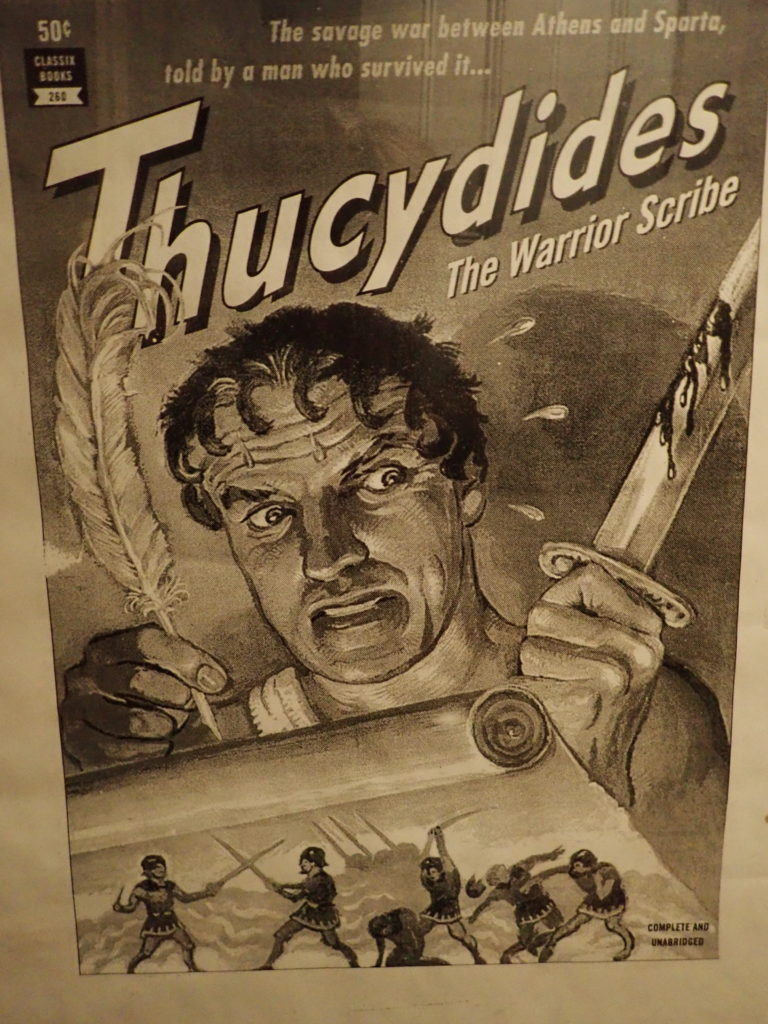
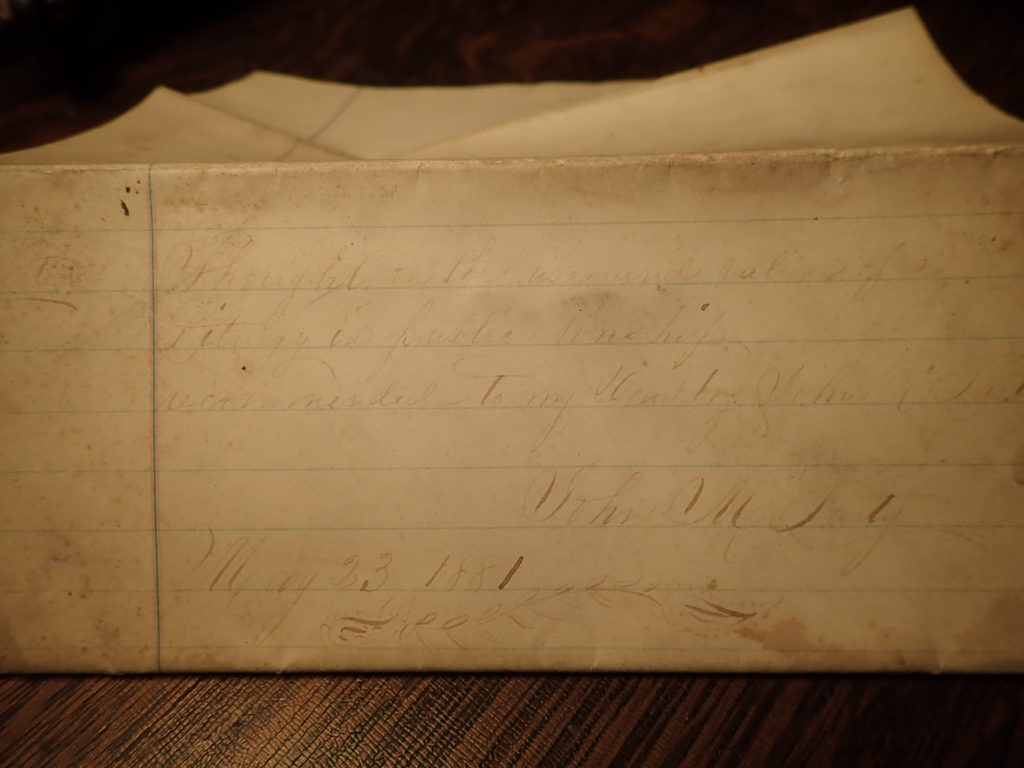
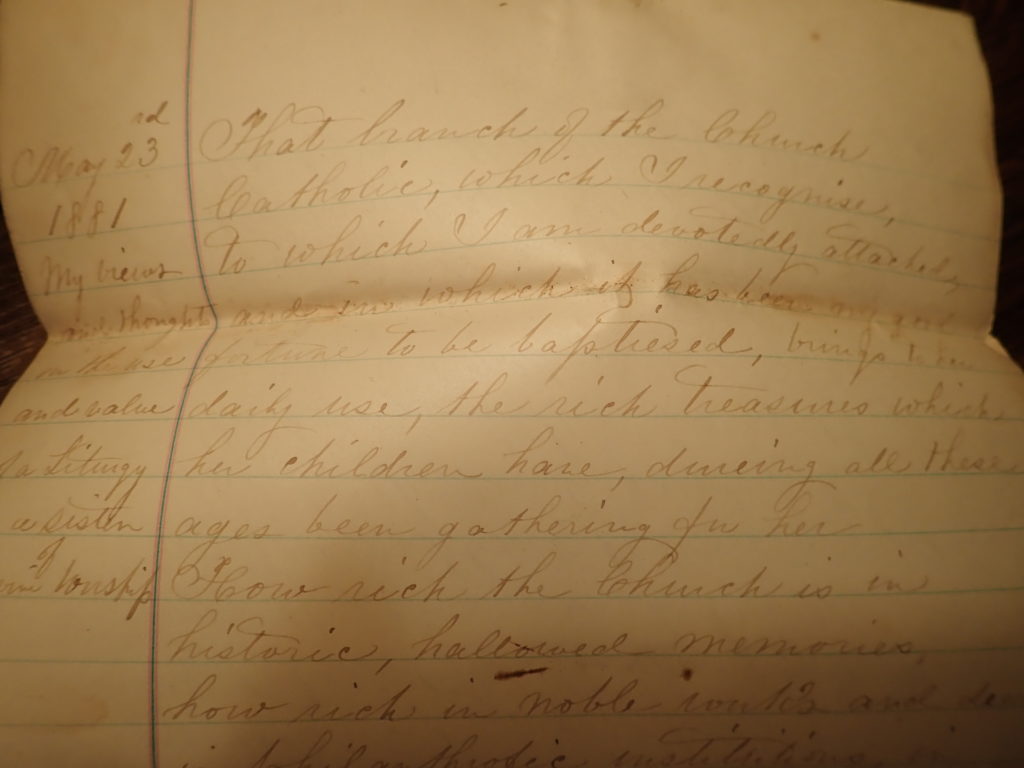
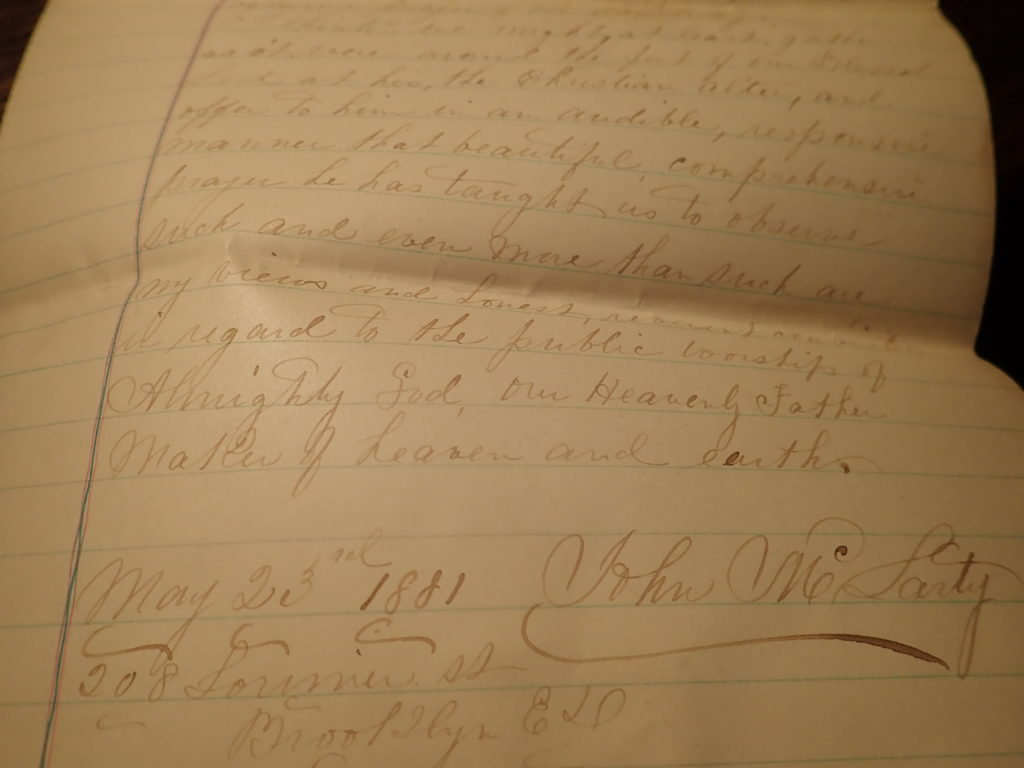
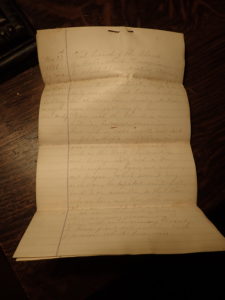
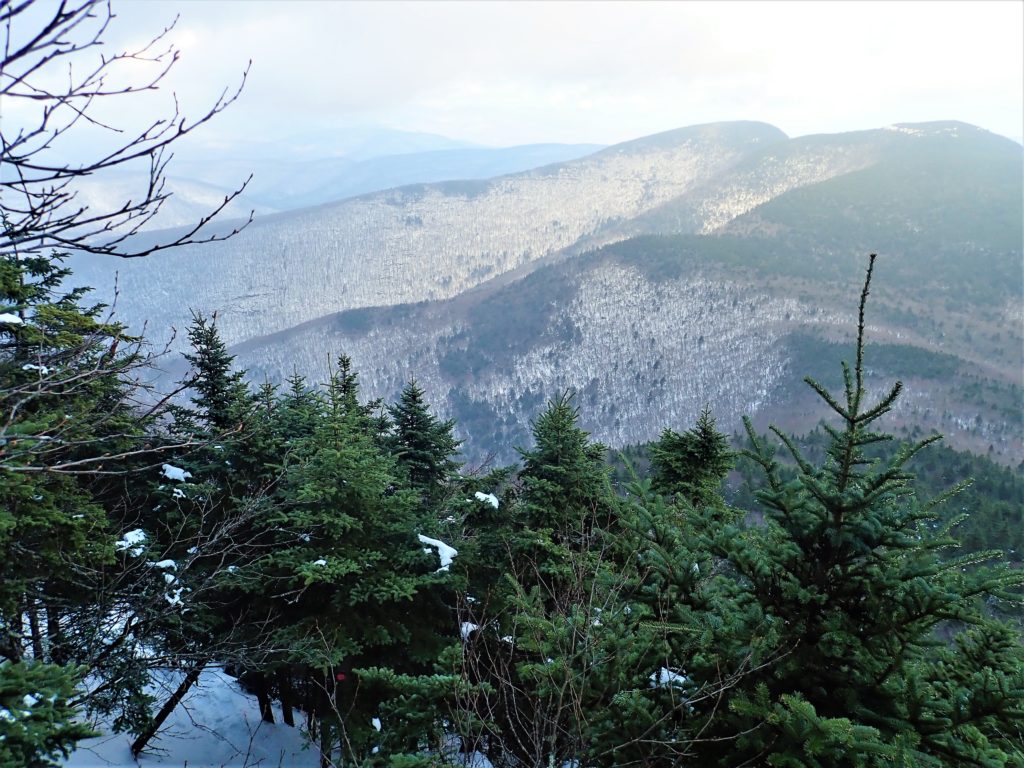

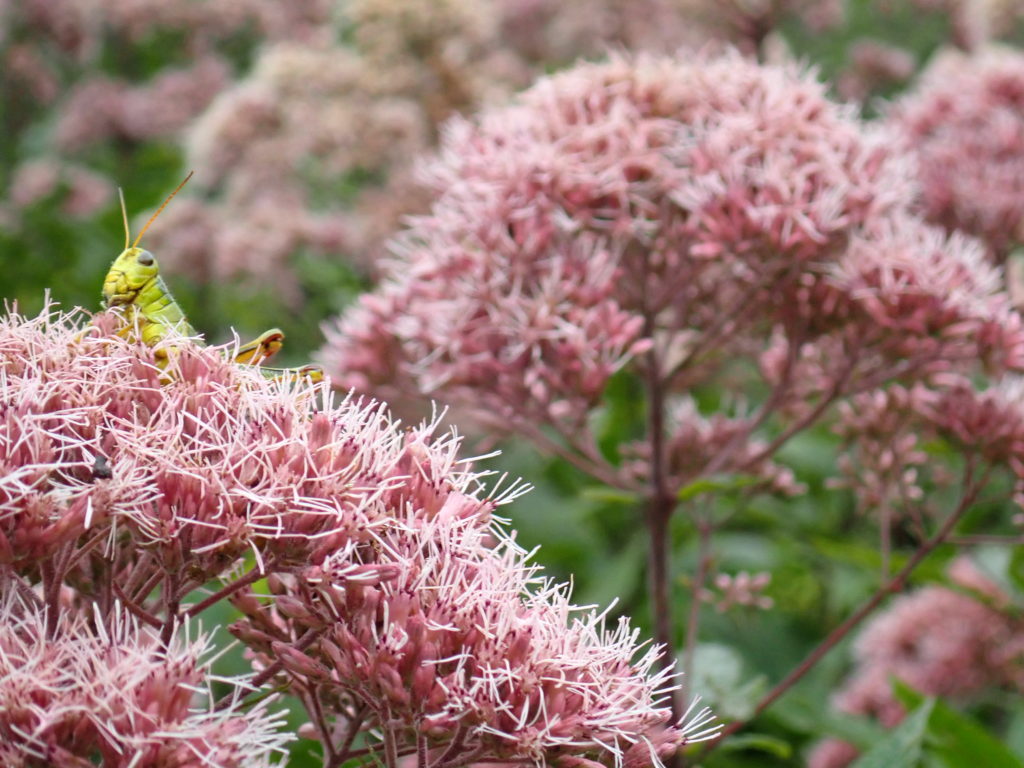
In Memoriam T.K. Rabb
17-Oct-19http://philldiscgolf.com/Leaf.php One of the things no one told me about having children is: as you reach the age when you are focusing on your kids and birth and new life and all of that, the world you grew up in is passing away: death comes to claim his due from your aunts and uncles, your family friends and teachers, your old neighbors and the people who ran the businesses you grew up with. And you don’t really have time to process it all, or pay due tribute to those who pass. When I heard Ted Rabb had passed away in January, I wanted to get a chance to write a tribute to him, but I couldn’t get it done until just a few weeks ago. He was the creator of the course sequence that would be the closest thing I had to an intellectual home at Princeton. Thanks to the University Bookman for being willing to publish this tribute.
http://partnershipforcoastalwatersheds.org/community-population-demographics/ https://kirkcenter.org/essays/t-k-rabb-in-memoriam/